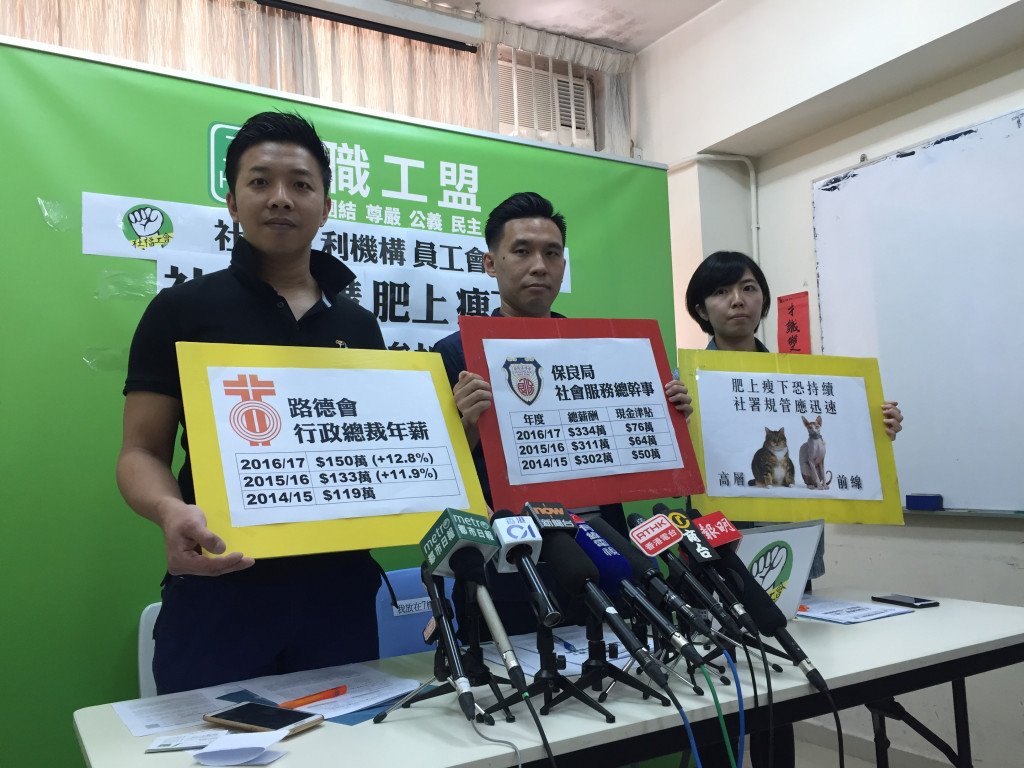A social welfare union has found that the highest-earning staff at five non-governmental organisations receive over HK$2 million a year, sparking criticism over pay gaps between different employees.
According to a government manual on lump sum grants, any NGO that receives more than HK$10 million from the Social Welfare Department – or whose funding exceeds 50 per cent of its operating income – has to report the remuneration packages of staff in the top three earning tiers.

The information is available to the public in order to “enhance transparency and public accountability on use of public funds,” according to the Social Welfare Department website. A total of 67 organisations were required to report the information in 2016-2017.
The Social Welfare Organizations Employees Union studied the reports of 66 such NGOs. It found that the highest-paid staff member at the Hong Kong Sheng Kung Hui Welfare Council earns HK$2.64 million a year – the highest among the organisations studied. At 15 of the NGOs, top-paid employers are awarded a salary higher than their Social Welfare Department counterparts.
At 32 of the NGOs, top-paid staff are also given a cash allowance in addition to their salary, with Po Leung Kuk’s two Principal Social Services Secretarys receiving HK$766,555 in cash allowances, the union said.

Tsang Kei-nam, a secretary-general for the union, questioned why there were two different pay rise mechanisms for frontline staff and those at management levels. The union demanded that the boards of such NGOs review whether resources were put into improving the packages of frontline employees.
Po Leung Kuk said in a statement that the salary structure is determined by operational needs, staff duties and responsibilities, and market demand and wage levels. It said it will continue to review remuneration and benefits, noting that – while there is a need to be prudent with finances – it has to offer a competitive rate to attract suitable talent.
